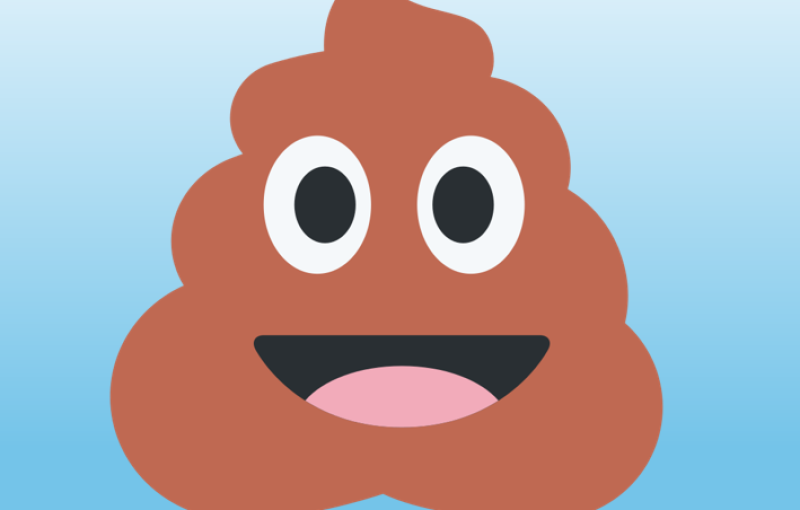
Your Dog’s Gross Habit Might Actually Be a Red Flag—Here’s What the Science Says
by Jon Scaccia April 22, 2025Okay, pet parents—let’s talk about something no one wants to admit: dogs who snack on poop. 🤢 Whether it’s their own, another dog’s, or a mysterious “gift” left by some unknown critter, this behavior—known as coprophagy—is more common than you think. But here’s the wild part: recent research shows that this not-so-charming habit might actually reveal something super important about your dog’s health.
Yep, science has entered the chat.
A massive study from Zoetis Reference Labs looked at over 48,000 doggy poop samples (you read that right) and found some surprising—and kinda gross—patterns. But don’t worry, we’re breaking it all down for you in clean, snackable bites.
Wait—What the Heck Are “Spurious Parasites”?
We’re glad you asked. Spurious parasites are real parasites—but they don’t actually infect your dog. Instead, they pass through your pup’s digestive system after being accidentally ingested, often because your dog is doing something totally normal (for a dog), like scavenging, hunting, or—yep—eating poop.
Think of it like this: if your dog eats rabbit droppings that contain parasites meant for rabbits, those parasites can end up in your dog’s poop even though they’re not actually infecting your dog. These little hitchhikers are called spurious parasites.
Gross? Definitely. Harmless? Not always.
The Shocking Link Between Spurious Parasites and Real Ones
Here’s where things get juicy (or, uh, squirmy?): the study found that dogs who shed spurious parasites in their poop were way more likely to also be infected with real, dog-specific parasites.
Let that sink in: if your dog’s poop contains any of these freeloaders, it’s a major heads-up that they may have a legit parasite problem too.
Think of spurious parasites as the “red flags” of dog poop. 🚩 They’re not the actual danger—but they’re pointing to behaviors that could lead to real trouble.
3 Real-Life Signs Your Dog Might Be Snacking on More Than Just Kibble
If you’re wondering whether your fur baby might be getting into something they shouldn’t, here are a few clues:
🐾 1. They’re Young, Wild, and Curious
The study found that puppies under 12 months old were way more likely to have spurious parasites. That’s not surprising—puppies are basically four-legged vacuum cleaners with no sense of self-preservation.
🐾 2. They’re Intact (Not Spayed or Neutered)
Intact male and female dogs had higher rates of spurious parasites. The why isn’t totally clear, but it could be linked to hormonal changes, higher roaming tendencies, or a stronger drive to scavenge.
🐾 3. They’re Outdoor Adventurers
Dogs from certain regions (especially the Northeast and Midwest) had higher parasite rates—possibly due to more exposure to wildlife, farm animals, or just more outdoor activity. If your dog’s the type to dig, sniff, or snack their way through the backyard, keep a closer eye.
What Can You Do About It? Science-Backed Tips for Pet Parents
We’re not here to shame your poop-curious pup—but we are here to help you take action. Here’s what the experts recommend:
💩 Get Regular Fecal Exams
Think of it as your pet’s poop report card. The study recommends frequent testing—especially if your dog’s young, intact, or loves the great outdoors.
🐶 Keep Them Busy (and Fed!)
Bored dogs = mischievous dogs. Enrich their environment with toys, puzzles, and plenty of walks to reduce the urge to scavenge or snack on random stuff.
🧼 Practice Good Poop Hygiene
Pick up poop quickly—yours, other dogs’, and even wild animal droppings if you see them in your yard. The less access your dog has, the better.
🧊 Store Poop Samples Right
If you’re sending a fecal sample to the vet, store it in the fridge or on ice—not on the counter. Yes, this is a real tip. You’re welcome.
Science Is Cool… Even When It’s Covered in Poop
This study didn’t just find a few weird bugs in dog poop. It showed us a whole pattern of behavior tied to our pets’ health. It’s a reminder that what ends up in your dog’s poop says a lot about what they’ve been into—and whether they might need a little extra TLC from you and your vet.
So next time your dog gives you the “I just ate something I shouldn’t have” look, take it seriously. Their poop could be telling you more than you think.
Share Your Pet’s Story 💬
Does your dog have a history of scavenging or surprise snacks? Ever found something unexpected in a fecal test? Let us know in the comments—we’re all in this messy journey together.
And hey—share this with a fellow dog parent who needs a reminder to check their pup’s poop (yes, seriously). 🐾
Transform Pet Health—Your Support Matters!
Join the movement with This Week in Pet Health—just $5/month or $50/year. We are entirely self-funded; your subscription directly sustains our delivery of groundbreaking insights on pet health and wellness. Be the expert your community needs in these crucial times. Subscribe now and secure the future of informed pet care!
Leave a Reply